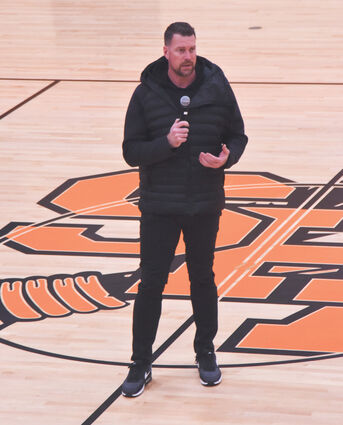Ryan Leaf Visit: A message of hope to those struggling with addiction
November 24, 2022
WORLAND – Ryan Leaf gave a presentation of his life story and his battle with addiction at the Worland High School gym on the morning of Nov. 18.
Leaf, the second overall draft pick in the 1998 NFL Draft, played quarterback in the NFL for four years before retiring. Following his retirement, he struggled with an addiction to prescription drugs that caused him legal trouble beginning in 2010, ultim...
For access to this article please
sign in or
subscribe.




